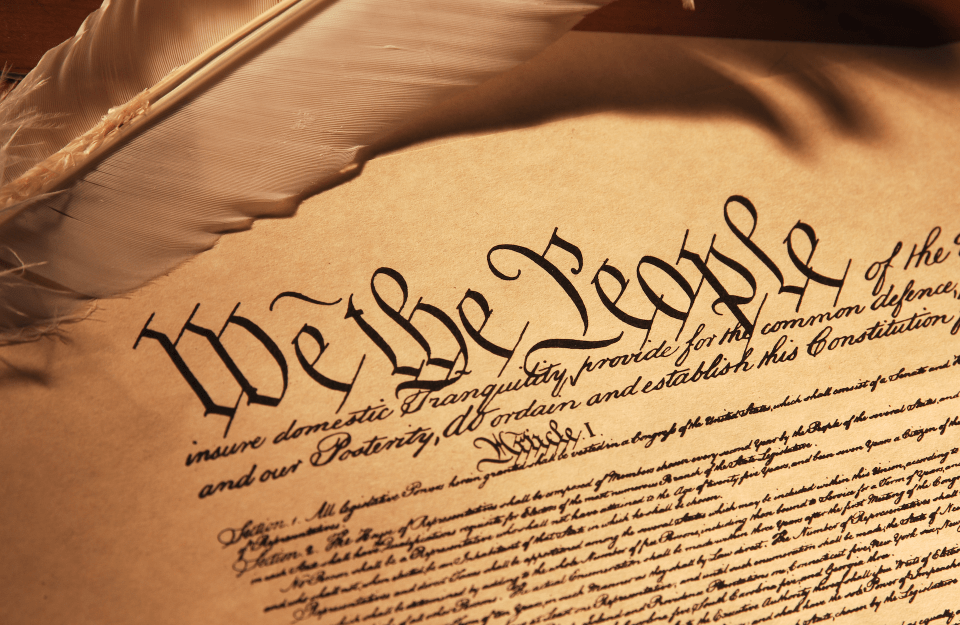Let’s face it, the president has always had the upper hand. Brilliant as they were, the Founders could not make the three branches of the federal government truly co-equal. After all, the president controls the money Congress appropriates. And he can always choose to ignore the judiciary. This is the shocking, norm-busting route Donald Trump may be taking as he tries to convert the presidency into a monarchy.
First, a little background. As Trump took office and signed a flurry of disruptive executive orders, many of us wondered, “Who is going to stand up to this and how will they do it?” Well, it turned out that lawyers for various groups opposed to his power grab were ready to act. They rushed to courts where judges ordered Trump to slam the brakes on eight big orders.
The administration responded in a way that should give us pause. “Judges aren’t allowed to control the executive’s legitimate power,” said Vice President J.D. Vance. “A corrupt judge protecting corruption,” said Elon Musk, head of the new Department of Government Efficiency (DOGE.) “He needs to be impeached NOW!”
Vance and Musk were responding to a judge’s recent order that blocked DOGE from grabbing access to the Treasury Department’s payment system. They most likely had two other cases in mind, too. In one a judge halted DOGE’s effort to remove tens of thousands of federal workers from their jobs. In the other, a judge temporarily stopped the administration from freezing payments that the federal government is obligated to make.
In the interest of clarity, let’s focus on the payment freeze. Here, Federal District Court Judge John J. McConnell Jr., of Rhode Island, said that Trump could not arbitrarily stop making payments the government is obligated to pay. (In this case, 22 states sued to keep funds they were supposed to receive, flowing.) The order was issued on January 29. Twelve days later, McConnell spoke again because Trump had not followed his ruling. Noting there are “no impediments” to the administration's compliance, he restated his original order. A White House spokesman didn’t say the executive branch would obey, choosing, instead, to declare, “…every action of the Trump-Vance administration is completely lawful.”
Well, in fact, it’s not up to the White House to determine if it is acting within the law. That job belongs to the judiciary. In the words of the Supreme Court’s Chief Justice John Roberts, judges are the ones who are supposed to “call balls and strikes.” In other words, when the executive is sued, the courts will decide whether an administration complies with the Constitution and/or the law.
Presidents get sued all the time. Until now they have accepted that they will win some and lose some. In fact, no modern president has even hinted at refusing to comply when he strikes out. (Richard Nixon turned over the damning Watergate tapes when a court ordered him to do so.) These presidents have known that following the rule of law as established by the courts separates the United States from other countries where strongmen, the ones with armies at their command, consider compliance optional.
Here in America, where might doesn’t (yet) make right, the Founders understood that power tends to corrupt, so they built competing centers of authority — Congress, the presidency, and the courts — under the belief that the branches would check each other. In the case of Trump, we have seen an unprecedented effort to grab more power from the other branches. A perfect example of this came when, in a clearly illegal move, he fired a slew of independent government watchdogs — called inspectors general — without a warning and justification notice required by law.
In another instance, Trump signed an executive order limiting the right to so-called “birthright” citizenship. This right grants citizenship to every person born on American soil. It was conferred by the 14th Amendment of 1868 and has never been in doubt. When Trump announced the U.S. would no longer grant birthright status to people whose parents are non-citizens, a judge quickly restrained the order from going into effect. He called it “blatantly unconstitutional”
Trump, who is renowned for tying up the courts in litigation, will defend his birthright citizenship order, and all the others, until he has exhausted his options. He’s likely to win a few and thereby expand presidential power. But I'm worried about the ones he will lose. In these cases, what is there to prevent him from simply defying the courts and doing as he pleases? Will the courts’ tiny U.S. Marshal Service arrest the scofflaw president? What will occur if the marshals and the Secret Service square off?
I cannot predict what will happen when Trump goes down the road to defiance. However, I do believe that the best response will come from the tens of millions of people who should rally, march, and protest. For no matter what Trump does, we are still a nation of, by, and for the people. We need to get ready to raise our voices.





We are being steamrolled. Spineless Republicans stand aside while our laws and Constitution are dismantled. Republican senators have allowed a slate of the most unqualified Cabinet nominees to be confirmed. There is no coming back from this!
Thanks Adam for being one of the few courageous ones.